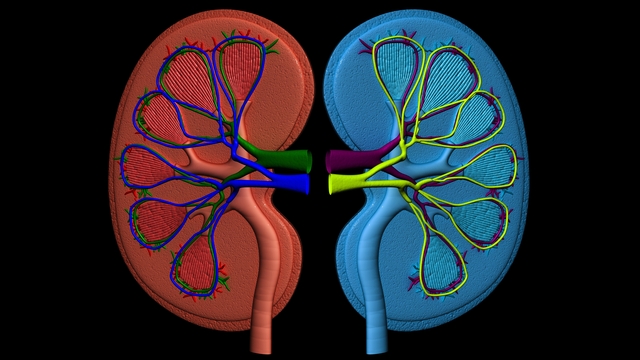 Divakaran Dileep/PhotoSpin
Divakaran Dileep/PhotoSpin
One of the less common types of cancer is adrenal cortical (or adrenocortical) carcinoma, abbreviated as ACC. Dr. Irina Veytsman, Dr. Lynnette Neiman, and Dr. Tito Fojo of the National Cancer Institute wrote a review of its characteristics and treatment options. The survival rate at 5 years is low, in part because it is usually diagnosed at an advanced stage. Better awareness of this unfamiliar cancer may help improve the statistics.
ACC may have no symptoms, or it may increase production of adrenal hormones, including cortisol. Excess cortisol in turn produces Cushing's syndrome, with a characteristic “moon face” appearance. Acne, decreased growth in children, high blood pressure, potassium deficiency, and weight gain are other possible symptoms of ACC related to cortisol production. In some patients, estrogen or androgen production is also increased, leading to feminine features in males or masculine features in females.
ACC is slightly more common in women than in men. It has a bimodal age distribution, affecting preferentially children younger than 5 years or adults in their 40's and 50's. The cause is unknown.
The primary treatment is surgery, which can cure some cases completely with one operation. Recurrence is common, however. Veytsman and coauthors reported they believe repeat surgery may improve survival, but the benefits are difficult to quantify.
The drug mitotane is used for ACC and other causes of Cushing's syndrome. Mitotane is an isomer of the insecticide DDE, which is chemically similar to the more infamous insecticide DDT. It is highly effective at managing hormone excess, but has side effects that are intolerable for many. These include gastrointestinal and neurological symptoms.
A Swedish group with first author Dr. B. Wangberg reported on a series of 43 patients with ACC treated in the same surgical center. All were offered mitotane treatment, unless other illnesses ruled this out. Most of these patients were able to tolerate high-dose mitotane, which increased the 5-year survival rate from 28.6 percent to 64.0 percent in patients with advanced cancer. Patients with stage 2 cancer in this study had survival rates of 80 percent or more with or without mitotane.
Conventional chemotherapy agents can be used in combination with or in place of mitotane. Ongoing studies are expected to provide more information about the best choices, according to Wangberg.
References:
1. Wangberg B et al, “The long-term survival in adrenocortical carcinoma with active surgical management and use of monitored mitotane”, Endocrine-Related Cancer 2010; 17: 265-72.
2. Veytsman I et al, “Management of endocrine manifestations and the use of mitotane as a chemotherapeutic agent for adrenocortical carcinoma”, J Clin Oncol 2009; 27: 4619-29.
Linda Fugate is a scientist and writer in Austin, Texas. She has a Ph.D. in Physics and an M.S. in Macromolecular Science and Engineering. Her background includes academic and industrial research in materials science. She currently writes song lyrics and health articles.




Add a CommentComments
There are no comments yet. Be the first one and get the conversation started!